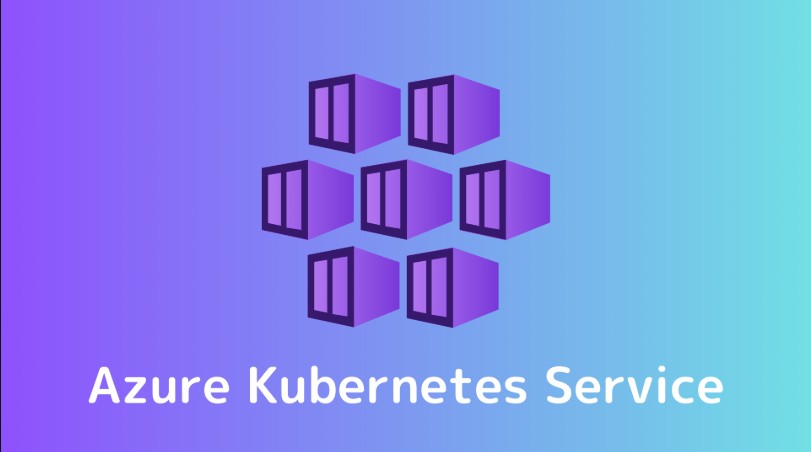Azure Kubernetes Service
Introduction to AKS
Introduction
In today’s cloud-native landscape, containerization has revolutionized how applications are developed, deployed, and managed. Kubernetes stands at the forefront of this transformation, offering robust orchestration capabilities for containerized applications. However, managing Kubernetes clusters can be complex and time-consuming.
Enter Azure Kubernetes Service (AKS)—a managed Kubernetes offering by Microsoft Azure that simplifies cluster management, allowing developers and IT teams to focus on building and scaling applications without the overhead of infrastructure maintenance.
What is AKS?
- Azure Kubernetes Service (AKS) is a fully managed container orchestration service that automates the deployment, scaling, and management of Kubernetes clusters in Azure.
- By handling critical tasks like health monitoring, maintenance, and scaling, AKS reduces the complexity and operational overhead associated with Kubernetes, enabling you to deploy and manage containerized applications with ease.
Key Features of AKS
Managed Control Plane:- Azure handles the Kubernetes control plane, including the API server and other critical components, at no additional cost.
Integrated Developer Tools:- Seamless integration with Azure DevOps, GitHub Actions, and other CI/CD tools for streamlined development workflows.
Scalability:- Easily scale applications up or down based on demand, with support for manual and automatic scaling.
Security and Compliance:- Integration with Azure Active Directory (AAD) for role-based access control (RBAC), and compliance with standards like SOC, ISO, and HIPAA.
Monitoring and Diagnostics:- Built-in monitoring with Azure Monitor and Log Analytics for real-time insights into cluster performance and health.
AKS Architecture Overview
- An AKS cluster consists of two main components:
Control Plane: Managed by Azure, it includes the Kubernetes API server, scheduler, and other components responsible for managing the state of the cluster.Node Pools: These are sets of virtual machines (VMs) that run your containerized applications. You can have multiple node pools to support different workloads, such as general-purpose or GPU-optimized tasks.
Networking in AKS
- AKS supports two primary networking models:
Kubenet: A basic networking model suitable for simple scenarios.Azure CNI: Provides advanced networking capabilities, allowing pods to have IP addresses in the Azure virtual network, enabling better integration with other Azure services.
Security and Identity Integration
- AKS offers robust security features:
Entra ID Integration: Manage user access and permissions using AAD, enabling single sign-on and RBAC.Network Policies: Define rules to control traffic between pods, enhancing security within the cluster.Private Clusters: Deploy clusters with private endpoints, restricting access to the API server from the public internet.
Storage Options in AKS
- AKS supports various storage solutions:
Azure Disks: Provide high-performance block storage for stateful applications.Azure Files: Offer shared file storage accessible by multiple pods simultaneously.CSI Drivers: Use Container Storage Interface (CSI) drivers for dynamic provisioning and management of storage resources.
Monitoring and Troubleshooting
- Monitoring is crucial for maintaining application health:
Azure Monitor: Collects metrics and logs, providing insights into cluster performance.Log Analytics: Allows querying and analyzing logs for troubleshooting and auditing purposes.
Upgrading and Scaling Clusters
- AKS simplifies cluster maintenance:
Cluster Upgrades: Easily upgrade Kubernetes versions through the Azure portal or CLI.Node Pool Scaling: Adjust the number of nodes in a pool to meet workload demands, with support for manual and auto-scaling.
Integrating with Azure Container Registry (ACR)
- AKS integrates seamlessly with ACR:
Private Image Storage: Store and manage container images securely.Image Pulling: Configure AKS to pull images from ACR without additional authentication setups.
High Availability and Disaster Recovery
- Ensure your applications are resilient:
Multi-Zone Clusters: Deploy nodes across multiple availability zones for fault tolerance.Backup and Restore: Use tools like Velero for backing up and restoring cluster resources and persistent volumes.
Conclusion
Azure Kubernetes Service (AKS) offers a powerful, managed environment for deploying and managing containerized applications. By abstracting the complexities of Kubernetes, AKS enables developers and IT professionals to focus on delivering value through their applications, leveraging Azure’s robust infrastructure, security, and integration capabilities.

